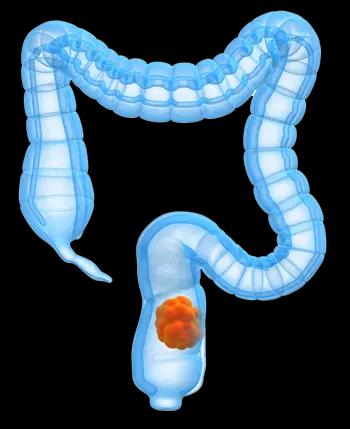In this guide, we will address frequently asked questions about bowel leakage and its potential connection to cancer. Bowel leakage, also known as faecal incontinence, is the inability to control bowel movements, resulting in the unintentional passage of stools. While bowel leakage can be caused by various factors, including diet and lifestyle, it is important to understand its potential link to cancer. In this article, we will explore the symptoms, causes, and treatment options for bowel leakage, as well as the signs that may indicate an underlying cancer diagnosis.
What is bowel leakage?
Definition and symptoms
Bowel leakage, or fecal incontinence, refers to the involuntary or accidental release of stools from the rectum. It is a common condition that affects people of all ages, although it tends to be more prevalent in older adults. Individuals with bowel leakage may experience a range of symptoms, including:
- Unintentional leakage of solid or liquid stool (bowel incontinence)
- Difficulty controlling bowel movements
- Urgency to defecate
- Frequent or unpredictable bowel movements
- Feelings of incomplete evacuation
- Common causes of bowel leakage
Bowel leakage can be caused by various factors, including:
- Weak or damaged anal sphincter muscles
- Nerve damage or dysfunction
- Chronic constipation or diarrhoea
- Pelvic floor muscle weakness
- Rectal prolapse or hemorrhoids
- Certain medical conditions, such as Crohn’s disease, ulcerative colitis, irritable bowel syndrome and other inflammatory bowel diseases, diabetes, multiple sclerosis and obesity
It is important to note that bowel leakage can also be a symptom of an underlying condition, including cancer. Therefore, it is essential to consult a healthcare professional for a proper evaluation and diagnosis.
The connection between bowel leakage and cancer
Types of cancer associated with bowel leakage
While bowel leakage can occur due to various reasons, certain types of cancer can also contribute to this condition. The types of cancer most commonly associated with bowel leakage include:
- Colorectal cancer: Colorectal cancer (a term used to describe colon cancer and rectal cancer) affects the colon or rectum and can lead to changes in bowel habits, including bowel leakage
- Anal cancer: Anal cancer can cause symptoms such as rectal bleeding, pain, and changes in bowel control
- Gynecological cancers: Cervical, ovarian, or uterine cancers can potentially affect the nearby structures and nerves, leading to bowel leakage
Signs of cancer-related bowel leakage
If you are experiencing bowel leakage and are concerned about its potential connection to cancer, it is important to be aware of the signs that may indicate an underlying cancer diagnosis. These signs include:
- Blood in the stool
- Unexplained weight loss
- Changes in bowel habits that persist over time
- Abdominal pain or discomfort
- Anemia or fatigue
If you are experiencing any of these symptoms in addition to bowel leakage, it is crucial to consult a healthcare professional for further evaluation and diagnosis.
Diagnosing bowel leakage
Medical evaluation and tests
When evaluating bowel leakage, healthcare professionals will typically conduct a thorough medical history review including family history and physical examination. They may also recommend additional tests to determine the underlying cause. These tests may include:
- Anal manometry: Measures the pressure and strength of the anal sphincter muscles
- Endoscopy: Allows visual examination of the rectum and colon using a flexible tube with a camera
- Imaging tests: X-rays, CT scans, or MRI scans may be used to identify structural abnormalities or tumors
- Stool tests: To rule out infections or other causes of bowel symptoms
Distinguishing cancer-related bowel leakage
To distinguish cancer-related bowel leakage from other causes, healthcare professionals may also order specific tests, including:
- Colorectal cancer screening: Colonoscopy or other screening tests may be recommended to evaluate for the presence of colorectal cancer
- Biopsy: If abnormal tissue is found during an endoscopy or imaging test, a biopsy may be performed to confirm the presence of cancer cells
It is important to remember that a healthcare professional will assess and determine the most appropriate diagnostic tests based on individual symptoms, medical history, and risk factors.
Treatment options for bowel leakage
Lifestyle modifications
In many cases, bowel leakage can be effectively managed with lifestyle modifications. These may include:
- Dietary changes: Adjusting your diet to include more fiber and fluids can help regulate bowel movements and reduce leakage episodes
- Bowel training: Establishing a regular schedule for bowel movements can help improve control and reduce leakage
- Pelvic floor exercises: Strengthening the pelvic floor muscles through exercises, such as Kegels, can enhance bowel control
- Medication management: Some medications, such as anti-diarrheal medications or bulking agents, may be prescribed to help manage bowel leakage
Medications
In certain cases, healthcare professionals may prescribe medications to address specific causes of bowel leakage. These may include:
- Antidiarrheal medications: These medications can help control diarrhea and reduce the frequency of bowel movements. e.g. loperamide
- Bulk-forming agents: Fiber supplements or medications that add bulk to the stool can improve stool consistency and reduce leakage
- Medications for nerve damage: If bowel leakage is caused by nerve damage, certain medications may be prescribed to manage nerve-related symptoms
It is important to follow the healthcare professional’s guidance and dosage instructions when taking medications for bowel leakage.
Surgical interventions
If lifestyle modifications and medications do not effectively manage bowel leakage, surgical interventions may be considered. Surgical options for bowel leakage may include:
- Sphincter repair: This procedure aims to repair weakened or damaged anal sphincter muscles to improve bowel control
- Nerve stimulation: Electrical stimulation of the nerves that control bowel function can help improve muscle control and reduce leakage
- Colostomy or ileostomy: In severe cases, where all other treatments have failed, a surgical procedure may be performed to divert stools through an opening in the abdomen into a bag
- Surgical interventions are typically reserved for cases where conservative measures have been unsuccessful or when there is an underlying condition, such as cancer, warranting surgical intervention.
Managing bowel leakage during cancer treatment
Considerations for cancer patients
For individuals undergoing cancer treatment, managing bowel leakage requires additional considerations. Some cancer treatments, such as radiation therapy or certain chemotherapy drugs, can cause gastrointestinal side effects that contribute to bowel leakage. It is important to communicate with your healthcare team about any bowel symptoms you may experience during treatment.
Supportive care measures
Supportive care measures can help cancer patients manage bowel leakage during treatment. These may include:
- Dietary modifications: Working with a registered dietitian can help identify foods that may exacerbate bowel leakage and develop a personalized diet plan
- Medication adjustments: Your healthcare team may modify your medication regimen to alleviate bowel symptoms and improve control
- Emotional support: Coping with bowel leakage can be emotionally challenging. Seek support from counselors, therapists, or support groups to address emotional well-being
Your healthcare team will work closely with you to develop a comprehensive plan to manage bowel leakage while undergoing cancer treatment.
Prevention and lifestyle tips
Dietary changes
Making dietary changes can play a significant role in preventing or managing bowel leakage. Consider the following tips:
- Increase fiber intake: Consuming fiber-rich foods, such as fruits, vegetables, whole grains, and legumes, can promote regular bowel movements and reduce the risk of leakage
- Stay hydrated: Drinking an adequate amount of fluids can help maintain soft and formed stools
- Limit trigger foods: Some foods, such as spicy or greasy foods, alcohol, and caffeine, can worsen bowel symptoms. Identify and avoid trigger foods that may contribute to leakage
Pelvic floor exercises
Strengthening the pelvic floor muscles through exercises can enhance bowel control. Consider incorporating the following exercises into your routine:
- Kegels: Squeeze and lift the muscles around the anus and vagina (for women) or scrotum (for men) and hold for a few seconds before releasing. Repeat several times a day
- Biofeedback: Working with a physical therapist trained in biofeedback techniques can help improve awareness and control of pelvic floor muscles
Maintaining bowel regularity
Establishing regular bowel habits can help prevent bowel leakage. Consider the following tips:
- Set a schedule: Try to have bowel movements at the same time each day, preferably after a meal
- Take your time: Allow yourself enough time to have a complete bowel movement without rushing
- Don’t ignore the urge: When you feel the urge to have a bowel movement, respond promptly to avoid accidents
By following these prevention tips and maintaining a healthy lifestyle, you can reduce the risk of bowel leakage and improve bowel control.
Support and resources
Support groups
Joining a support group for individuals with bowel leakage can provide valuable support and understanding. These groups offer a safe space to share experiences, exchange tips, and learn coping strategies. Reach out to local hospitals or healthcare organizations to inquire about support groups in your area.
Counseling and therapy
Individual or group counseling sessions can help individuals cope with the emotional challenges associated with bowel leakage. Professional therapists can provide guidance, coping strategies, and support to manage the psychological impact of living with bowel leakage.
Online communities
Engaging with online communities and forums dedicated to bowel leakage can provide a sense of community and support. These platforms allow individuals to connect with others who share similar experiences and seek advice from those who have found effective strategies for managing bowel leakage.
When to seek medical attention
Red flags
While bowel leakage can often be managed with lifestyle modifications and other interventions, it is important to be aware of red flags that may warrant immediate medical attention. Seek medical help if you experience:
- Rectal bleeding that is persistent or severe
- Sudden and unexplained weight loss
- Severe abdominal pain or cramping
- Bowel leakage accompanied by fever or signs of infection
- Changes in bowel habits that persist for an extended period
Contacting your healthcare provider
If you have concerns about bowel leakage or suspect an underlying condition, do not hesitate to contact your healthcare provider. They can evaluate your symptoms, perform necessary tests, and provide appropriate guidance and treatment options.
Conclusion
Bowel leakage, while distressing, can be effectively managed with a combination of lifestyle modifications, medications, and, in some cases, surgical interventions. It is crucial to consult a healthcare professional for an accurate diagnosis and personalized treatment plan. By addressing the underlying causes and implementing appropriate strategies, individuals can regain control over their bowel movements and improve their overall quality of life.
Sources
Medical Disclaimer
NowPatient has taken all reasonable steps to ensure that all material is factually accurate, complete, and current. However, the knowledge and experience of a qualified healthcare professional should always be sought after instead of using the information on this page. Before taking any drug, you should always speak to your doctor or another qualified healthcare provider.
The information provided here about medications is subject to change and is not meant to include all uses, precautions, warnings, directions, drug interactions, allergic reactions, or negative effects. The absence of warnings or other information for a particular medication does not imply that the medication or medication combination is appropriate for all patients or for all possible purposes.










